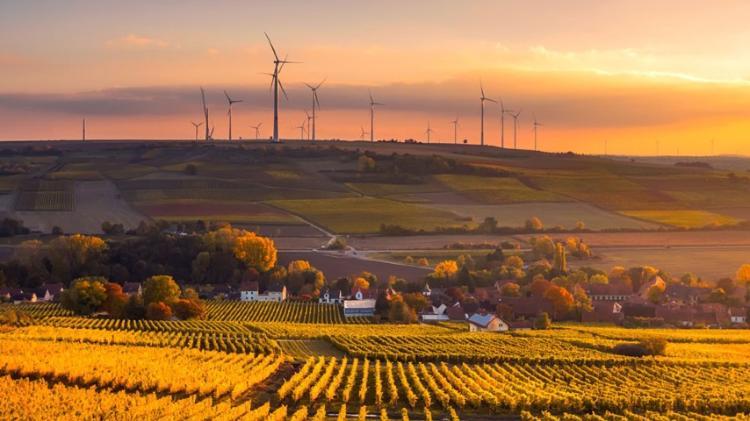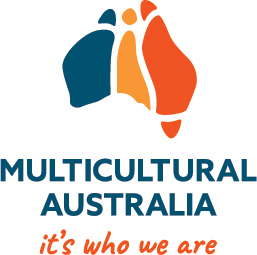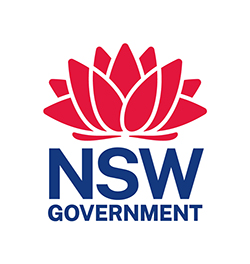'Settling well in regional Australia: Experiences of people from refugee backgrounds' is an Australian Research Council (ARC) Linkage Project
Settling well in regional Australia
Experiences of people from refugee backgrounds
Settling well in regional Australia aims to provide the first longitudinal, comparative assessment of the impacts of the settlement of people from refugee backgrounds in regional Australia, for both people from refugee backgrounds themselves and the communities in which they settle. The project uses a mixed-method and multi-sited approach to generate new knowledge of the opportunities and challenges for sustainable settlement in regional Australia. It commenced in 2022 and is funded until December 2026 by the Australian Research Council Linkage Program [LP200100205] with contributions from five Partner Organisations.
Settling well in regional Australia aims to answer a range of important questions with relevance for policy and practice relating to the settlement of people from refugee backgrounds in regional Australia:
- How do diverse groups of people from refugee backgrounds feel about, and experience, life in regional and rural areas of Australia?
- How does living in regional and rural areas impact the economic, social and cultural lives and opportunities of people from refugee backgrounds, and also their health and wellbeing?
- How does the built and physical environment in diverse regional locations affect settlement and belonging of people from refugee backgrounds?
- How do diverse regional and rural communities feel about, and experience, the arrival and settlement of people from refugee backgrounds?
- How does settlement of people from refugee backgrounds, in regional and rural communities, shape existing residents’ economic, social and cultural lives and opportunities, and also their health and wellbeing?
- How do all of these dimensions of the settlement of people from refugee backgrounds in regional Australia vary over time, as relationships and connections between new arrivals and longer-term residents have an opportunity to develop and grow?
- What approaches to the settlement of people from refugee backgrounds in regional Australia maximise positive outcomes for both them and their destination communities?
The Settling well in regional Australia project team acknowledges the Traditional Custodians of all of the lands on which we live and work. We pay our respects to Elders, to all First Nations peoples living on these Countries, and to Country itself. As a research team, we aim to meaningfully and respectfully engage with Traditional Custodians in the regional communities where our research is conducted. We also commit to identifying mechanisms for Traditional Custodians to provide input into policy and practice relating to the settlement of people from refugee backgrounds in regional Australia; and opportunities to foster connections between people from refugee backgrounds and First Nations communities.
Expected project outcomes include enhanced community, organisational and government decision-making capacity relating to settlement of people from refugee backgrounds in regional Australia. The information provided by Settling well in regional Australia will tangibly support government, practitioners, people from refugee backgrounds and regional communities to take actions that support the wellbeing of people from refugee backgrounds and contribute to healthy and resilient regional communities.

The Settling well in regional Australia project team are working across six study sites in regional New South Wales (NSW), Queensland (QLD) and Victoria (VIC). Case study sites have been selected to encompass diverse groups of people from refugee backgrounds, diverse types of destination communities, and different approaches to regional settlement (e.g. settlement that is government-led, community-led, business-led, or migrant-led). The six selected regional case study sites are Albury-Wodonga and surrounding townships, Cowra and Orange in NSW; Rockhampton and Townsville in QLD; and Nhill and Mildura in VIC.
In addition, the Settling well in regional Australia team will undertake research with people from refugee backgrounds who live in Sydney, Brisbane and Melbourne, and who aspire to move to regional areas of Australia. Our goal is to understand more about their motives, as well as barriers and opportunities they face in relocating.
In each selected case study site, the Settling well in regional Australia project team will conduct a comparative, longitudinal investigation of regional settlement by:
- documenting the settlement experiences of people from refugee backgrounds in regional Australia (including economic, social, cultural, environmental, health and wellbeing dimensions);
- investigating the impacts of the settlement of people from refugee backgrounds in regional Australia on destination communities across these same dimensions; and
- documenting instances of, and reasons for, onward mobility of people from refugee backgrounds out of regional Australia.
The Settling well in regional Australia project team will use a mixed-methods research approach, encompassing longitudinal surveys of people from refugee backgrounds and broader community members in regional case study sites, interviews, focus group discussions, economic impact assessment, and demographic analyses. We will also explore opportunities to use participatory and creative methods like photovoice, storytelling, drawing and mapping activities.
Furthermore, the Settling well in regional Australia project team recognises that First Nations communities have rarely been invited into discussions about regional settlement as part of Australia's humanitarian migration policy despite being the First Peoples of these settlement sites. We feel this has to change. This project acknowledges the enduring presences of First Peoples. A fundamental part of this acknowledgement is for us to respectfully listen and sit with First Nations communities to hear if there are ways and practices of ensuring regional settlement is done the right way.
Through these research activities in regional and urban areas, the research will identify key policy and practice learnings to support successful and sustainable primary and secondary settlement of people from refugee backgrounds in regional Australia.
Settling Well is a partnership between:
- University of Wollongong
Represented by: Associate Professor Natascha Klocker, Dr Olivia Dun and John Idriss Lahai - University of Newcastle
Represented by Dr Paul Hodge and Emmanuel Musoni - Western Sydney University
Represented by Dr Melissa Philips, Margaret Piper AM and Talia Stump - University of Melbourne
Represented by Dr Karen Block, Associate Professor Celia McMichael, Dr Ankur Singh, Dr Lauren Carpenter and Salsawi Feleke Debela

This Settling Well project is supported with funding from the Australian Government’s Department of Home Affairs. Through its settlement services function, the Department of Home Affairs works to improve the wellbeing of migrants and refugees settling in Australia by responding to their specific needs and encouraging their independence and participation in the Australian community. The Settling Well longitudinal study aligns well with the strategic objectives of the Department of Home Affairs by helping to inform the development and implementation of policy related to the settlement and retention of humanitarian entrants in regional Australia.
The study will provide an important insight into the enablers and barriers to regional settlement of humanitarian entrants, and the important role and perspectives of the community in which they have settled. This research will fill an important gap in existing research as it will monitor entrant’s experiences, attitudes and perspectives over time. The research will also align these perspectives with political and environmental developments occurring during the course of the study, and explore the relationship of the community to the humanitarian entrants’ settlement experience. The five year longitudinal nature of the study will be important in understanding key influences on decisions made by humanitarian families and individuals, at different times of their life, on whether to remain in or leave regional locations.

AMES Australia is a leading provider of settlement services in Australia, providing a comprehensive range of initial settlement services, English language and literacy tuition, vocational training, and employment services to migrants, refugees and asylum seekers. Our vision is full participation for all in a cohesive and diverse society. The Settling Well research project complements AMES Australia’s Social and Economic Participation Framework to assist our clients achieve their short and long term settlement goals in Australia.
A current strategic priority for AMES Australia is to contribute to the evidence base to improve settlement and resettlement policies and practices, both in metropolitan locations and in regional Australia. The Settling Well project has potential for direct application to inform service design and program models of settlement services for refugees and migrants by providing data-driven perspectives of recent migrants and local stakeholders in regional Australia.

Multicultural Australia Multicultural Australia has a strong commitment to supporting the successful settlement of humanitarian entrants in regional Australia. As the Queensland provider of settlement services, Multicultural Australia has deep alignment with the proposed research being conducted by the Settling Well project.
Through our work Multicultural Australia sees the mutual opportunities that settlement in regional Queensland offers newcomers and local communities. Towards this we support the proposed research in its aim to provide a robust evidence base around humanitarian settlement in regional Australia. Multicultural Australia hopes the knowledge gained through this research will provide strategies to address barriers and challenges to regional settlement and support positive settlement outcomes for humanitarian migrants.

The purpose of Multicultural NSW is to promote community harmony and social cohesion in one of the most culturally diverse states in the world. Our vision is for a stronger NSW using our cultural diversity as a vehicle to achieve cultural and economic prosperity. Our responsibilities include the provision of settlement policy and program coordination for matters across NSW Government and support for the NSW Coordinator General for Settlement. The objective is to facilitate successful settlement outcomes for refugees and humanitarian entrants across NSW.
The Settling Well project is of significant relevance to Multicultural NSW’s strategic priorities. The comparative and longitudinal study of diverse settlement locations will provide valuable insights into the enablers of (and barriers to) regional resettlement from the perspective of multiple stakeholders. Additionally, the Settling Well project review of existing regional settlement policies and programs will provide practical insights that inform Multicultural NSW’s approach across the coordination of various primary and secondary settlement initiatives, contributing to improved wellbeing of humanitarian migrants and regional communities across NSW. The project research findings will also inform the efficacy and sustainability of regional settlement policies and practices.



